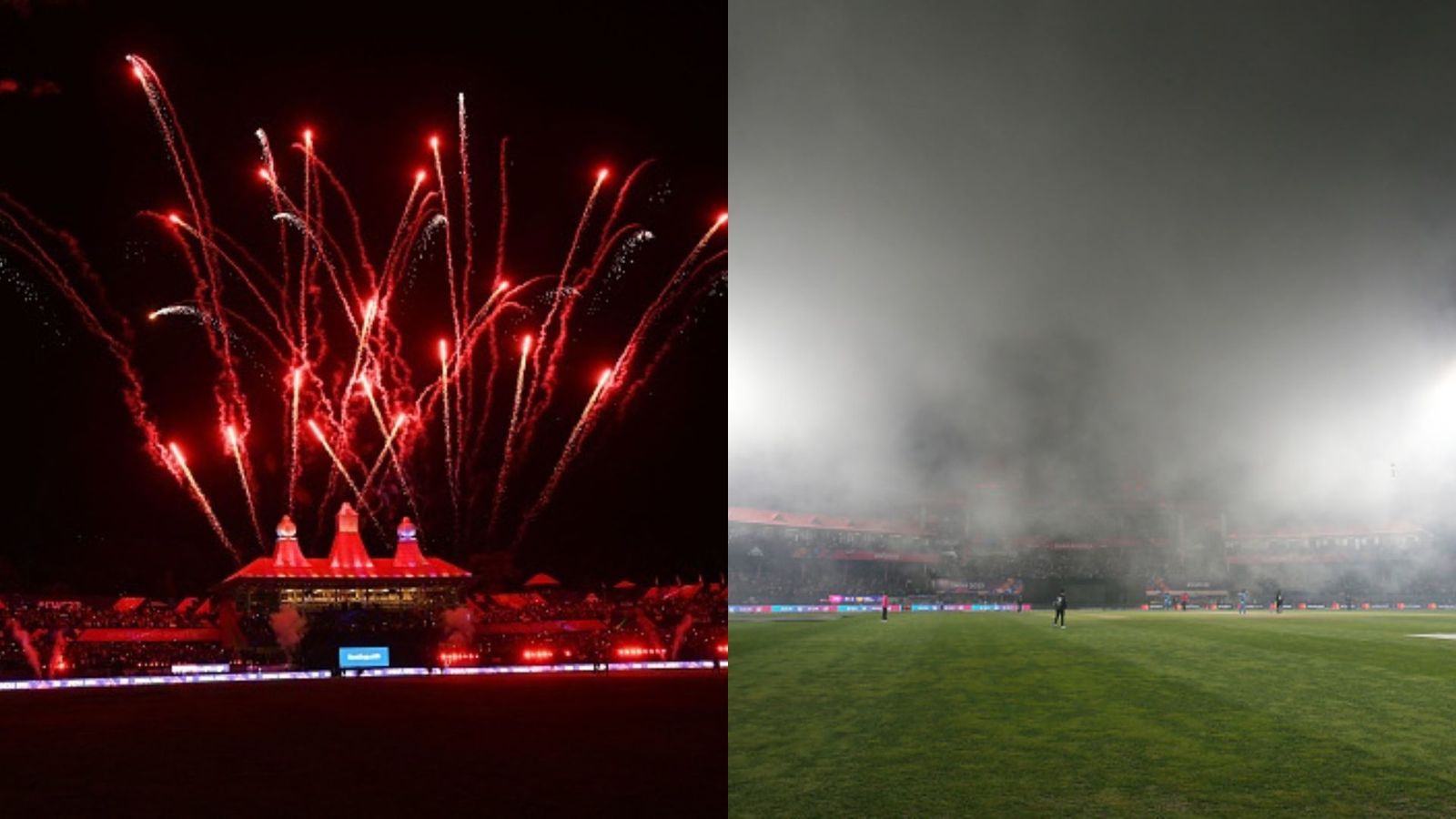As the highly-anticipated match between India and New Zealand got underway in the ODI World Cup on October 22 (Sunday) in Dharamsala, it was evident that the winner of this clash would assert their dominance in the tournament. Both teams had maintained a flawless record in their preceding four matches, adding to the excitement surrounding the encounter. However, India's compelling victory over New Zealand by four wickets has firmly established Team India as a frontrunner in the competition. With an unblemished record of five wins in as many matches, India now occupies the pinnacle of the points table with a perfect tally of 10 points.
The India-New Zealand clash has etched several moments into the annals of cricket history, making it a match to be remembered for years to come. While India's revenge overs the Kiwis made the ending sweeter for Indian fans and excessive fog halting play in Dharamsala became a spectacle, let's delve into some pivotal moments from the encounter and understand why this match will remain indelible in cricket fans' memories.
'Rockstar' Ravindra Jadeja's impact
In the initial four matches of the tournament, India's top-order batters had exhibited exceptional prowess, leaving little opportunity for the lower-order batsmen to shine. Ravindra Jadeja, a standout player known for his all-round abilities, hadn't even been called upon to bat in those four matches. However, cricket enthusiasts fondly recall Jadeja's instrumental role in the 2019 World Cup semi-final, where he played a pivotal innings that guided India to victory. This time around, Jadeja once again made a substantial batting contribution, forging a crucial partnership with Virat Kohli. He scored an unbeaten 39 runs off 44 balls, and his collaboration with Kohli proved to be a match-winning alliance.
Suryakumar Yadav's ODI World Cup debut
Suryakumar Yadav, renowned for his impressive T20 performances for India, made his much-anticipated ODI World Cup debut in this match. He received the opportunity in the playing XI as a replacement for the injured Hardik Pandya. However, Suryakumar couldn't make a significant impact in this high-stakes encounter. A miscommunication with Kohli while running resulted in his run-out, and he could only muster two runs before departing.
India's extended batting display
In the earlier matches, India had comfortably chased down targets within 41.2, 35, 30.3, and 41.3 overs against Australia, Afghanistan, Pakistan, and Bangladesh, respectively. However, the match against New Zealand marked a departure from this trend as India had to bat for more than 42 overs to secure a victory. This extended batting display showcased India's adaptability and determination in a high-pressure situation.
KL Rahul's first dismissal
KL Rahul had been in sensational form throughout this World Cup, maintaining a clean slate with no dismissals in the first four matches. His remarkable comeback following an injury had been the talk of the tournament. However, the match against New Zealand brought a change in fortunes as Rahul was dismissed for the first time in the competition, scoring 27 runs.
Jadeja's wicketless spell
Jadeja had been a pivotal figure in India's campaign, making significant contributions with both bat and ball in previous matches. He had claimed 3 wickets against Australia, 2 wickets against Pakistan, and 1 wicket each against Afghanistan and Bangladesh. However, in the match against New Zealand, Jadeja, despite conceding more than 40 runs, couldn't pick up a single wicket, marking an unusual wicketless spell in the tournament.
Drop catches
For the first time in this World Cup, India's fielding performance was marred by dropped catches in their match against New Zealand. In the 11th over, India's reliable fielder, Ravindra Jadeja, missed a catch that he typically completes with ease. During this incident, he failed to hold onto the catch of Rachin Ravindra, who was batting on 12 runs at the time. Jadeja's impeccable catching skills are well-known, making this drop all the more surprising. Subsequently, Ravindra went on to score a significant 75 runs off 87 balls, highlighting the costliness of the missed opportunity.
Later in the innings, KL Rahul also contributed to the dropped catches tally when he missed a catch during Ravindra Jadeja's final over. Then, just three overs later, Jasprit Bumrah added to the list of dropped catches, this time on the boundary line. Daryl Mitchell, who was well set at 69 runs, hit a delivery from Kuldeep Yadav, and Bumrah couldn't hold onto the catch at long off. Among these incidents, Mitchell's drop was particularly expensive, as he continued to accumulate runs after being granted a lifeline.
Bumrah's rare one-wicket spell
Jasprit Bumrah, India's premier fast bowler, had been a wicket-taking machine in the earlier matches of the tournament. He took 2 wickets against Australia, 4 wickets against Afghanistan, 4 wickets against Pakistan, and 2 wickets against Bangladesh. However, the match against New Zealand marked an unusual occurrence as Bumrah bagged just one wicket for the first time in the tournament.
MORE ON SPORTS TAK:
IND vs NZ: Rohit Sharma reacts to Virat Kohli's match-winning knock in typical 'Hitman' style
Watch: After heated chat, pumped-up Virat Kohli hugs and lifts Rohit Sharma in dressing room balcony post India's win


